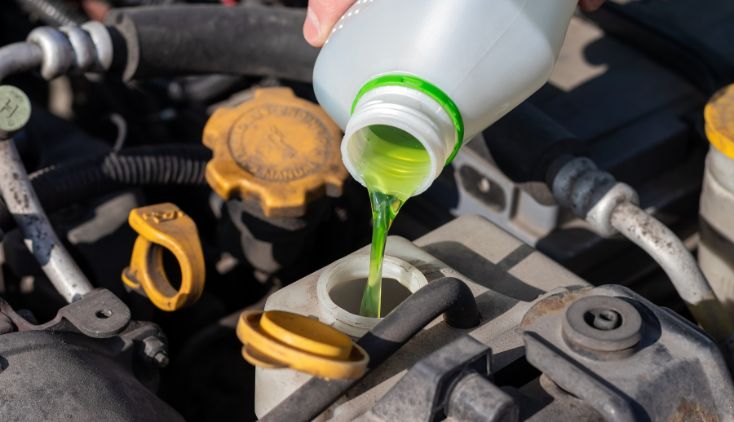Keep Your Engine Running Smoothly
Vehicles can be adversely affected by extreme temperatures and weather conditions. That’s where coolant and antifreeze come in. Regularly topping up the antifreeze supply in your engine’s cooling system lowers the water’s boiling and freezing point. This ensures the engine can function normally, regardless of the weather or time of year.
Read on to learn how to correctly use coolant and keep your engine safe throughout the year.
Is There a Difference Between Coolant and Antifreeze?
There is a lot of confusion regarding the difference between coolant and antifreeze. Car dealers and mechanics use these terms interchangeably, leaving many car owners in the dark about these two essential products and what they do.
Antifreeze is a propylene glycol concentrate that lowers the freezing and boiling points of the engine’s radiator fluid. It also includes anti-corrosion properties, protecting the engine from chemical damage.
On the other hand, coolant is a diluted form of anti-freeze. Typically comprised of equal measurements of antifreeze and water, coolant has the same properties as antifreeze. The only difference between the two products is whether you purchase a pre-mixed or concentrated version.
Why Are Coolant and Antifreeze Important?
Over time, cars have become smaller and more efficient. However, they still require regular maintenance to remain road-worthy and safe to drive. Routinely topping up your engine’s coolant supply ensures that your vehicle is prepared for any temperature, be it the extreme heat of summer or sub-zero winter temperatures.
Coolant is especially important during the colder months. If you park your vehicle outside overnight, the radiator fluid is at risk of freezing. As it freezes, water expands, putting pressure on the internal structure of the radiator, potentially leading to the development of cracks.
Without a functioning radiator, the engine is at risk of overheating. The rise in temperature causes oxidization which, in turn, causes rust to form. This threatens the structure and functionality of the engine.
In addition to this, the correct coolant for your engine can prevent corrosion and scale build-up. It is especially important if you live in an area with hard water rich in limescale.
How to Use Coolant and Antifreeze
Whether it’s the first time you are topping up your car’s supply of coolant or you’ve been maintaining the same vehicle for years, you must use the coolant recommended by the manufacturer. Car engines can differ significantly, depending on the size or purpose of the vehicle. As such, there is no universal approach to coolant and antifreeze.
Finding the Correct Coolant or Antifreeze
Before purchasing coolant, check the specifications outlined in the vehicle’s handbook or contact the dealership. This ensures that you are using the correct product for your car. The wrong coolant can cause severe damage and create the very issues you were trying to prevent.
Avoid purchasing cheap products, however tempting they may be. Typically, they are less effective and will not protect your engine properly. Cheaper coolants are also more susceptible to forming sludge, which can clog your radiator system.
Topping Up Radiator Coolant
If the coolant levels in your car’s engine are low, a warning light will appear on the dashboard. Quickly resupplying the coolant will keep your engine from overheating and protect it from corrosion. Don’t ignore the warning light or put off topping up the coolant supply.
You must allow the engine to cool down before removing the filler cap when using either coolant or antifreeze. If the engine is still hot, unscrewing the cap could release pressurized hot water.
Antifreeze must be diluted with water before it is poured into the coolant tank. Follow the exact measurements detailed on the packaging to dilute it correctly. Ideally, you should use distilled water to remove any minerals, such as limescale.
Using the Wrong Coolant
The wrong coolant can cause engine damage and inadequately protect your engine. If you mistakenly used the wrong coolant for your vehicle, a professional mechanic must drain and flush the system.
The substances in coolant and antifreeze are harmful, so you should never attempt to drain the system yourself. A mechanic will also be able to supply you with the right coolant and instruct you on how to top up your supply when necessary.
Final Thoughts
Coolant and antifreeze can keep your engine in peak condition for years. Whichever product you choose, coolant or antifreeze, just ensure that it aligns with the specifications outlined by the vehicle manufacturer. Regardless of the weather, you can relax knowing your engine is fully equipped for your next adventure.
